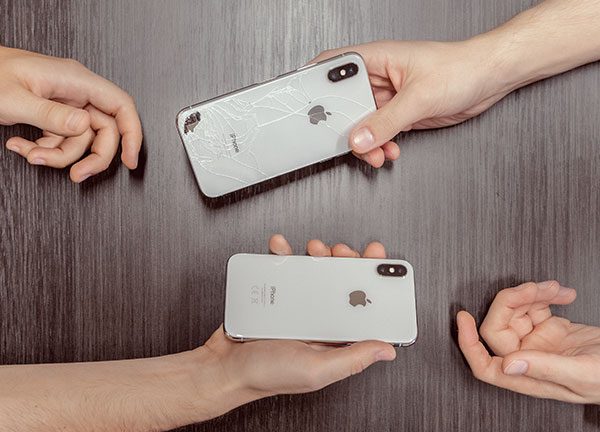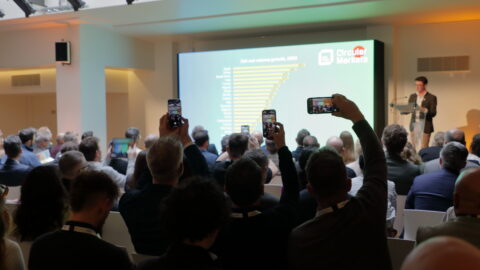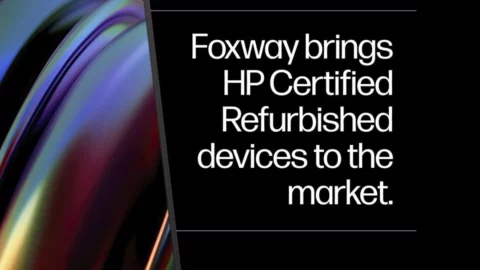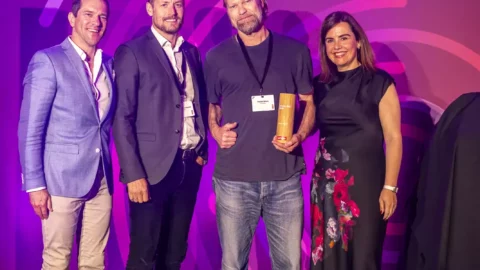-The demand of digital devices immensely increased as the pandemic was a fact in the beginning of 2020. A large part of the population was recommended to work from home. At the same time, students had to switch from lectures in University halls to a screen at home. The new reality during the Covid-19 pandemic has meant an explosive growth in IT-related activities. It is no surprise that this has put a strain on the global supply chains and that we are reaching a breaking point, Suzana Drakulic explains.
Sometime ago, Intel’s CEO announced during a web conference in Taipei, according to Reuters, that it is likely to take a few years to catch up the lack of chip and other components needed in digital units. This is due to the influence of Covid-19 in the manufacturing countries. Another important aspect is a lack of access to raw materials to meet the strong demand of new devices on the market. As a consequence, Intel is now investing in expanded capacity for chip manufacturing in the US and Europe. All in order to ensure a sustainable supply chain of components in all markets around the world.
The situation around the globe is changing the rules
The current world situation creates a general uncertainty. This in turn, leads to both organizations and individuals being forced to use the hardware they have had in their possession longer than planned. The effect of not updating the devices as planned, can lead to risks in the form of data breaches, poorer performance and applications that can no longer be updated:
-At Foxway, we work continuously to communicate the information we have based on the current situation and the solutions we see. Among other things, we have emphasized the importance of submitting qualitative forecasts and orders on time. We have also produced an offer to use recycled units as a substitute for new ones while waiting for deliveries. With today’s low capital costs, a customer might consider adding larger buffer stocks to ensure a predictable delivery time, says Suzana Drakulic.
A business model that changes our behaviour
Foxway is a company that aims to fundamentally change the market, so that organizations and the people in them have the opportunity to make sustainable choices that benefit everyone – and our planet:
-We can do this through our model that gives units several life cycles. Renting hardware as a service instead of owning it, is an important part of a sustainable development. With a circular economy, we have the opportunity to create both benefit and value, she explains.
The pandemic has meant a lot of learning so far. Defining the effects on society and tackling future challenges is an important piece of the puzzle for solving problems:
-For most people, it has become clear that everything is connected and how vulnerable we actually are. With that awareness, we can hopefully make wiser decisions ahead. One such example is to spread the production of various components in more parts of the world. It is not only manufacturing that is a challenge. We also need to create a balance, linked to market demand, where a shortage of raw materials is something everyone needs to relate to. This is where Foxway’s Device as a Service business model with a second, third and fourth life cycle comes in. We work diligently with customers and suppliers and continue to drive development in the spirit of sustainability and circular thinking, says Suzana Drakulic.
Device as a Service (DaaS) – Devices as a service
The device-as-a-service market has been experiencing significant growth in recent years. Mainly due to increased demand when it comes to subscription-based businessmodels that convert high purchasing costs for new technology to lower operating costs for technology as a service. More and more people are changing their behavior to be able to use the latest technology and gain access to customized services such as device configuration, installation, data migration, on-site support and technology recycling.
The DaaS model is becoming increasingly popular among organizations and companies as it provides preconfigured hardware such as desktops, laptops, tablets and smartphones and custom software.
With one of northern Europe’s largest tech centers, Foxway enables multiple lives for digital devices. Therefor the company has a unique position in the DaaS market, which is expected to grow from USD 50.3 billion in 2021 to USD 303.6 billion in 2026.
Are you ready for new habits? We are happy to share how to get started!
Recommerce Enterprise Public Sector Electronic Waste Reuse Recycling Circular Workspace Solutions




